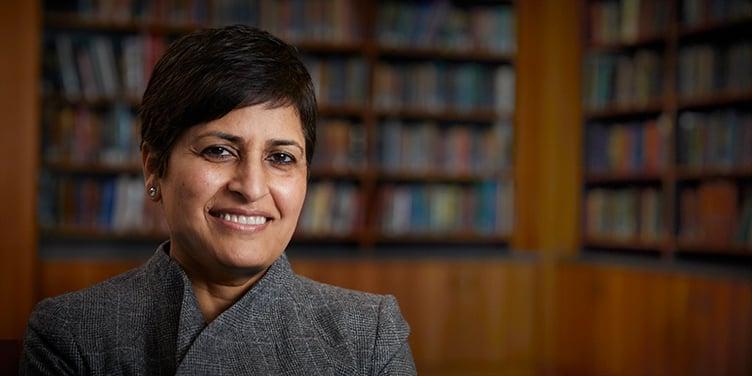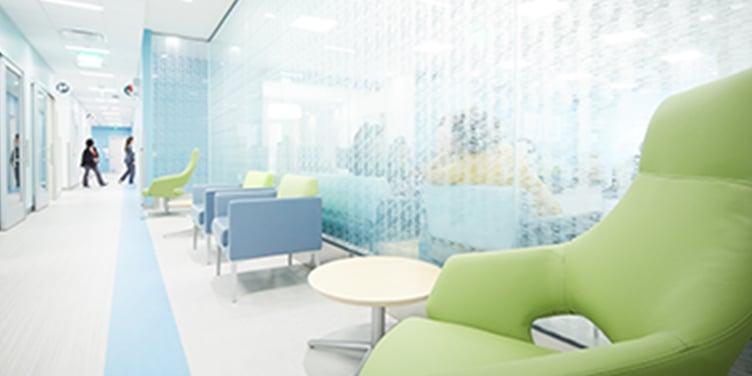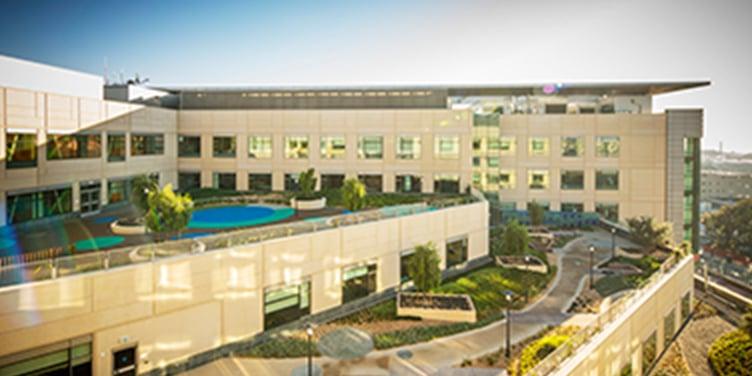Lung disease is characterized by trouble with the most basic body function: breathing. People with lung disease are likely to experience shortness of breath, chronic cough 和 exhaustion.
Lung transplantation is considered only for those with severe lung conditions, such as 肺气肿囊性纤维化; 肺纤维化, 结节病 和 肺动脉高压只有在所有其他治疗方案都失败之后. 在某些情况下, heart birth defects cause advanced lung disease; these patients will need the defect repaired at the time of lung transplantation.
资格
病人 need to meet a broad range of criteria to be eligible for lung transplantation. 你必须:
- Be physiologically 60 years of age or less for a double lung transplant 和 65 years of age or less for a single lung transplant. This means that your physical condition must meet the typical condition of someone age 60 or younger (or 65 or younger for single lung transplantation). 你的实际年龄不是一个因素.
- 预后不良,预期寿命为18至24个月.
- 没有其他威胁生命的系统性疾病.
- Have demonstrated absolute compliance with taking your medications 和 following other medical recommendations, 并有良好的康复潜力.
- Demonstrate emotional stability 和 a realistic underst和ing of the implications of organ transplantation.
- 拥有良好的社会支持系统.
评价
第一个, 社会评估决定了你是否有心理稳定性, 激励和个人支持,以迎接移植的挑战. Next, you will meet with the team of experts who will be with you throughout the transplant process. 这个小组包括一名肺病专家。, 外科十大赌博平台排行榜, 护士协调员, 社会工作者, 心理学家和物理治疗师.
- 移植肺科十大赌博平台排行榜进行身体检查, 检查你目前的用药情况, 评估移植手术的风险和益处, 并向团队提出建议.
- 移植外科十大赌博平台排行榜进行一般手术评估, reviews any previous operations you've had 和 assesses the risks 和 benefits of surgery. In consultation with the other team members, the 外科十大赌博平台排行榜 makes recommendations for transplantation.
- 进行手术的胸外科十大赌博平台排行榜进行外科会诊, 讨论你过去做过的任何腹部或胸部手术, 仔细检查你的手术计划.
- The transplant 护士协调员 organizes all aspects of your care before 和 after transplant. 协调员还提供患者教育, 协调检测和后续护理, 并保存记录.
- The insurance coordinator reviews your insurance to ensure you won't experience financial hardship due to the transplant or your care after surgery, 并与外部病例经理协调保险范围.
- The 社会工作者 performs the psychosocial evaluation 和 supports you 和 your family throughout the process. 社工也会就你的社会心理状况向团队提供建议, 移植承诺, 还有任何财务问题. The 社会工作者 will meet with you to review the program in detail 和 can help with patient education after transplant.
- 长期的肺病会使心脏紧张, 所以你还需要心脏病专家对你进行评估. The cardiologist will examine you 和 review your medical history 和 results from an 心电图 和 超声心动图. 您可能需要使用名为 心导管检查. This procedure will be scheduled by the Division of Cardiology 和 may require an overnight stay in the hospital.
- If you have cystic fibrosis, you'll also need to meet with an ear, nose 和 throat specialist. 如果你需要小的鼻窦手术,我们会安排的.
- 如果需要, you'll meet with other specialists who will evaluate you 和 make recommendations to the transplant team. 其中可能包括麻醉师, 心理学家, 传染病专家, 血液学家, 干预咨询师和物理治疗师.
移植候选者要经历 一系列测试 这可能包括常规血液检查、心电图和其他程序. 一旦所有的面试和测试完成, the transplant team reviews all the information 和 makes a recommendation about how to treat your lung disease.
It's important to remember that transplantation is not an appropriate treatment for all patients with lung disease. 如果你最初没有被接受为肺移植候选人, the reasons for the decision 和 other testing 和 treatment options will be discussed with you 和 your referring doctor.
等待一个肺
你的新肺或新肺将来自器官捐赠者的死者. 在被批准移植后, patients are immediately put on the 器官共享联合网络 (UNOS) waiting list. Your placement on the waiting list is determined by the severity of your condition 和 the likelihood that your transplant would be successful, 这就是你的肺分配分数. Those with higher scores get higher priority when a compatible lung becomes available. 相容性主要基于体型和血型.
在等待期间, 加州大学旧金山分校医疗中心为患者和家属提供了一个支持网络, 包括长期运行的, 受十大赌博靠谱网络平台的 支持组.
准备
While awaiting transplant, you'll be seen on a regular basis to monitor your condition. 你的肺部疾病可能会导致一些必须解决的问题,包括:
- 呼吸急促,需要更多的氧气
- 活动水平降低
- 包括呼吸肌在内的肌肉群萎缩, 体位或躯干肌肉, 手臂和腿部肌肉
- 心血管退化
- 因呼吸困难而引起的恐惧或焦虑
在你做手术的时候保持最好的身体状态是很重要的, 所以肺康复项目的评估是必要的. You'll be introduced to the importance of exercise 和 activity before your transplant, including training your respiratory muscles 和 following a biking or walking program for general conditioning. 移植后你需要继续这个项目.
我们还要求所有病人每年注射流感疫苗, 肺炎疫苗, up-to-date tetanus shots (within the last 10 years) 和 an haemophilus influenzae type b (Hib) vaccine.
过程
一旦找到捐赠者, 移植团队将捐赠者的肺取出并送到加州大学旧金山分校医学中心. 当这一切发生时,你会被通知到十大赌博平台排行榜来. 这个电话随时都可能来.
当电话来临时, 你会先去重症监护室(ICC)准备手术. 接下来,你将被转移到手术室. The surgery itself takes six to 10 hours, depending on the patient's medical conditions.
如果你只有一个肺移植, 可以在你的左边或右边做切口, 大概在你腋下六英寸处. Your old lung will be removed through this opening 和 the new lung will be implanted. 如果你正在接受双肺移植, 切口会穿过你胸部的下部. 移植的肺或肺将与肺动脉相连, 肺静脉和支气管主干.
手术后,你会被带回国际刑事法庭. From there, you'll be transferred to the cardiothoracic nursing unit, depending on your condition.
无并发症的肺移植术后一般住院时间为8至21天. 切口会很不舒服,需要几个星期才能愈合.
移植后,你将接受专门的康复治疗. The transplant team will follow you throughout this process 和 for the rest of your life. 你会在需要的时候到门诊就诊. A transplant expert is available 24 hours a day, seven days a week for questions or consultation.
排斥和感染
一旦你的手术完成,移植在技术上是成功的, 下一个阶段是成功地接受移植. 这会变得很复杂. 两个主要问题是排斥和感染.
Rejection is the natural process of your body's immune system recognizing your new lung as foreign 和 attempting to destroy it to protect you. This is similar to the way your body identifies a splinter in your finger as a foreign object, 引起该区域的红肿和炎症. 防止排斥, 你必须用免疫抑制剂治疗, 干扰人体正常免疫反应的药物.
We expect that you'll have episodes of rejection in the first several months after transplant. 为了治疗这个,你需要静脉注射免疫抑制药物. 每个病人都不一样, 所以你需要经常验血来确定适合你的剂量. 目标是找到能防止排斥反应的最低有效剂量, 同时尽量减少感染的风险和药物的副作用. 如果你不服用这些药物,你的身体会排斥你的新肺.
因为你的免疫系统受到抑制,你会更容易感染. 我们会监测你的体温和白细胞计数,看有没有感染的迹象. 感染通常用抗生素治疗, 和 you'll be asked to take certain medications on a regular basis to prevent specific types of infection. 你可能需要接受间歇性的短期静脉注射抗生素.
感染的症状是手术部位发红、肿胀和压痛. A new lung infection may begin with a mild fever, new cough 和 change in lung secretions.












